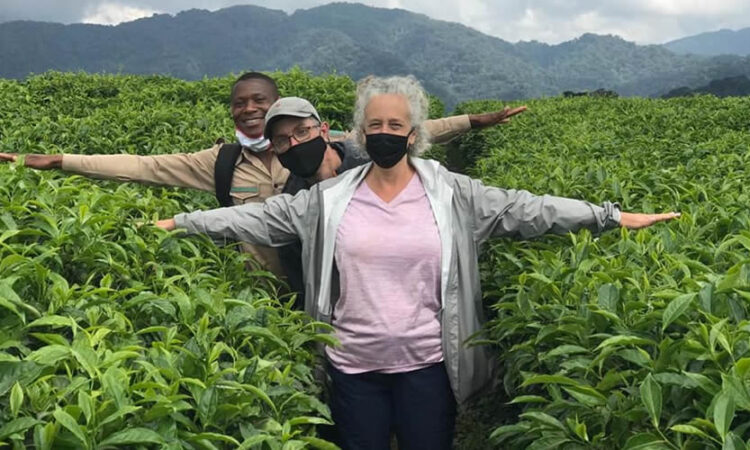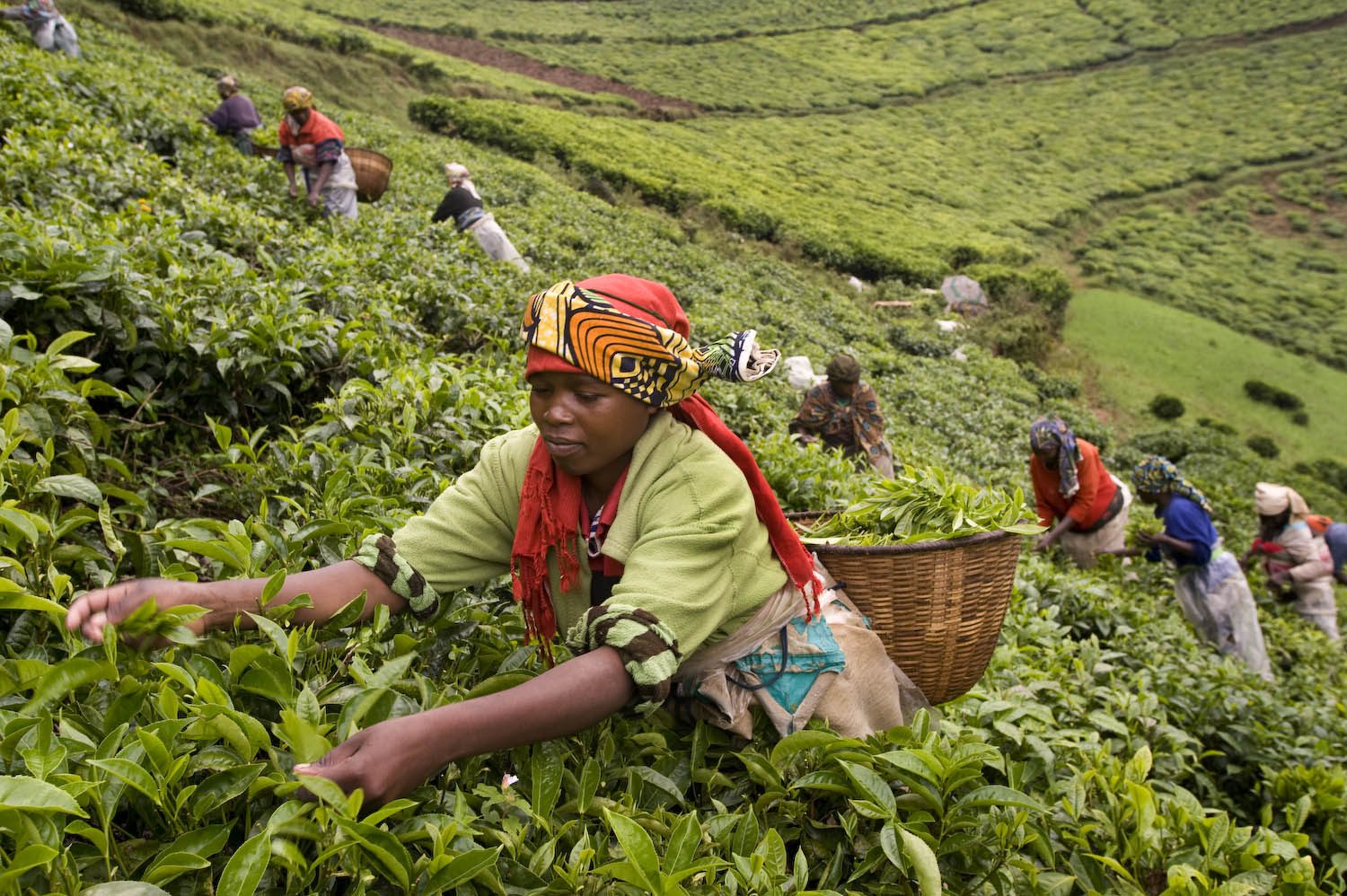Touring Tea Plantations in Rwanda : Rwanda, renowned for its breathtaking landscapes and vibrant culture, is home to captivating tea plantations that have become a major attraction for tourists. With a history dating back to 1952, when tea was first introduced to the country, Rwanda has emerged as a significant player in the global tea industry. The fertile volcanic soil and favorable climatic conditions have fostered an ideal environment for tea cultivation, resulting in 24,000 hectares of tea plantations and 18 tea factory lines. These plantations offer visitors a unique opportunity to witness the entire process of tea production, appreciate the picturesque scenery, and gain insights into Rwanda’s rich history and culture. In this article, we will explore the allure of Rwanda’s tea plantations, delve into the economic significance they hold, and highlight the must-visit estates within the vicinity of Nyungwe Forest National Park.

The Enchanting Tea Plantations: Rwanda’s tea plantations, nestled amidst cascading slopes, showcase a truly picturesque scenery that leaves a lasting impression on visitors. Here are the reasons why touring tea plantations should be an essential part of your Rwanda itinerary:
- Captivating Natural Beauty: As you traverse the undulating hills, the sprawling tea plants create a striking contrast against the azure skies, rural pathways, and abundant sunlight. The lush greenery of the tea plantations, meticulously cared for by dedicated workers, offers a serene and captivating environment. The proximity of these plantations to Nyungwe Forest National Park, known for its biodiversity and natural wonders, further enhances the visual appeal of the surroundings, allowing visitors to appreciate the harmonious coexistence of cultivated tea and untouched wilderness.
- Educational Experience: Visiting a tea plantation provides a fascinating opportunity to learn about the art of tea production, from the cultivation of tea leaves to their processing. Gain insights into the agricultural practices employed, witness the meticulous plucking of tea leaves, and observe the skilled workers who contribute to the production of this beloved beverage. Immerse yourself in the rich history and cultural significance of tea in Rwanda, as you interact with locals who have dedicated their lives to cultivating and producing this exquisite product.
- Contribution to the Local Economy: Beyond its allure as a tourist attraction, tea production plays a vital role in Rwanda’s economy. Accounting for approximately 1% of the country’s GDP annually, the tea industry serves as a significant driver of economic growth and job creation. By visiting the tea plantations and supporting the local economy, visitors contribute to the sustainable development of Rwanda, helping to uplift communities and promote self-sufficiency.

Touring Tea Plantations in Rwanda
Must-Visit Tea Estates near Nyungwe Forest National Park: To fully immerse yourself in the tea plantation experience, here are three notable estates that should be on your itinerary:
- Gisakura Tea Estate: Situated along the undulating hills at the western fringes of Nyungwe Forest National Park, the Gisakura Tea Estate stands out as one of Rwanda’s most famous and visually stunning plantations. The meticulously arranged tea lines create a captivating contrast with the surrounding natural beauty. Visitors can take guided tours of the estate, explore the grounds, and even indulge in a cupping session to savor the distinct flavors of Rwanda’s renowned tea. For those with extra time, the estate offers accommodations, allowing you to fully embrace the tranquility and splendor of the region.
- Gisovu Tea Estate: Located at the northern edge of Nyungwe Forest National Park, the Gisovu Tea Estate offers a breathtaking blend of sparkling tea fields and meandering pathways. The estate’s strategic position provides a striking juxtaposition between the orderly tea lines and the untamed beauty of the adjacent forest. Aside from guided tours and tea tasting sessions, visitors can also enjoy leisurely walks through the estate or venture into the trails of Nyungwe Forest National Park. Basking in the serene Rwandan evenings, accompanied by cups of the world’s finest tea, offers an experience that lingers in one’s memory.
- Gatare Tea Estate: Nestled near Nyungwe Forest National Park, the Gatare Tea Estate captivates with its awe-inspiring hills, panoramic views of the forest, and the majestic presence of Mount Muzimu and the Congo Nile. The estate not only showcases the beauty of tea cultivation but also provides an opportunity to delve into the region’s history and cultural heritage. Visitors can engage in guided tours, learn about the tea production process, and interact with the local workforce. The harmonious blend of natural splendor and cultural immersion makes Gatare Tea Estate a must-visit destination for tea enthusiasts and nature lovers alike.
A journey through Rwanda’s tea plantations unravels a world of captivating beauty, cultural heritage, and economic significance. As you explore the undulating hills adorned with lush tea plants, you will gain a deeper appreciation for the art of tea cultivation and production. These plantations not only offer picturesque landscapes but also serve as an engine for economic growth, creating jobs and contributing to Rwanda’s development. By visiting these tea estates, you not only support the local economy but also foster a greater understanding of Rwanda’s rich history and vibrant culture. So, embark on a tea-inspired adventure and let the beauty of Rwanda’s tea plantations leave an indelible mark on your journey through this remarkable country.


